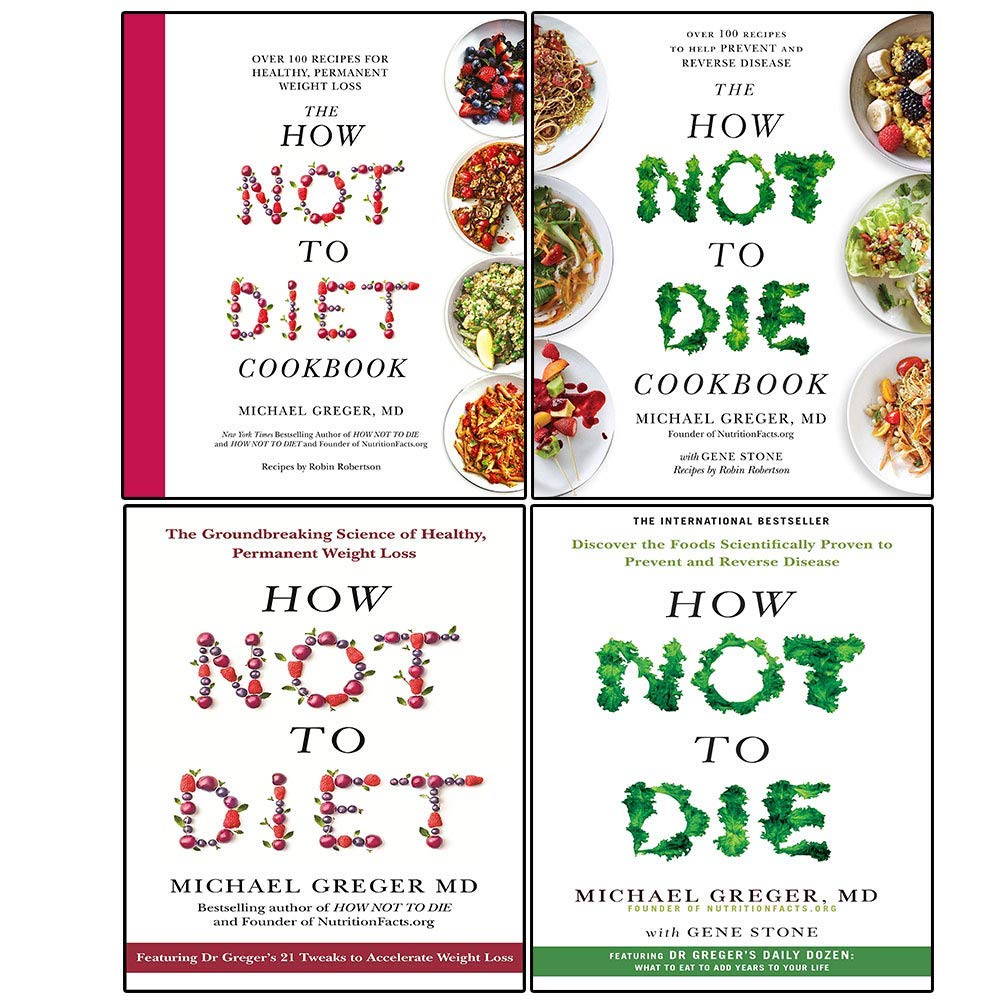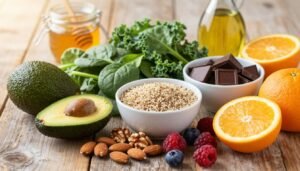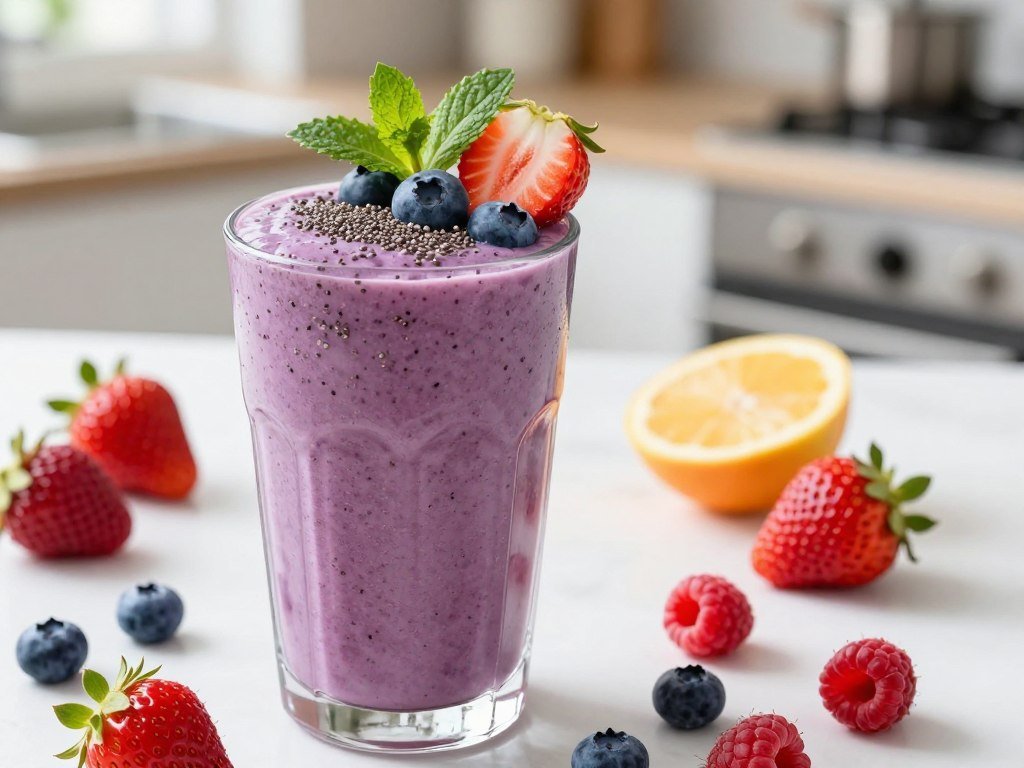As an Amazon Associate I earn from qualifying purchases.
Transitioning to a Plant-Based Diet
The Rise of a Whole Food Plant-Based Diet:
Benefits, Challenges, How to Get Started
In recent years, there has been a significant rise in the popularity of plant-based diets. More and more people are choosing to embrace a lifestyle centered around plant-based foods for various reasons. This article will explore the benefits and, the challenges they may pose, and provide practical tips on how to get started.


Understanding the Diet
Plant-based diets are centered around consuming foods derived from plants, including fruits, vegetables, whole grains, legumes, nuts, and seeds. These diets prioritize plant-based foods while minimizing or excluding animal products such as meat, dairy, eggs, and seafood. Plant-based diets can range from vegetarian and vegan diets to flexitarian and pescatarian diets, where individuals may include limited amounts of animal products.
Benefits of Whole Food Plant-Based Diet
Improve Health
One of the key benefits of adopting a plant based diet is improved health. Plant-based foods are rich in essential nutrients, fiber, and antioxidants, which are beneficial for overall well-being. Studies have shown that plant-based diets can lower the risk of chronic diseases like heart disease, diabetes, and certain types of cancer. Additionally, plant-based diets are often lower in saturated fats and cholesterol, contributing to better cardiovascular health.

Environment
Another significant advantage of plant based diets is their positive impact on the environment. Animal agriculture is a major contributor to greenhouse gas emissions, deforestation, and water pollution. By reducing the consumption of animal products, individuals can help mitigate climate change, conserve natural resources, and promote sustainability.
Animal Welfare
Plant-based diets align with ethical considerations regarding animal welfare. Choosing this diet option reduces the demand for animal products obtained through intensive farming practices. By embracing the lifestyle, individuals can contribute to the well-being of animals and support more compassionate and sustainable food systems.
Article on Plant-Based Proteins

Challenges of Plant-Based Diet
Nutritional Considerations
One challenge is ensuring adequate nutrition when excluding or reducing animal products. It is important to pay attention to consuming a variety of plant-based foods to obtain essential nutrients such as protein, iron, calcium, vitamin B12, and omega-3 fatty acids. Careful meal planning, supplementation if necessary, and consulting with a registered dietitian can help address these nutritional needs.
Social and Cultural Factors
Adopting a plant-based diet may pose social and cultural challenges. Eating habits are deeply ingrained in social gatherings and family traditions, which can make it difficult for individuals to adhere to their dietary choices. Communicating openly with friends and family, offering to bring plant-based dishes to gatherings, and seeking like-minded communities can help navigate these challenges.
Availability and Affordability
Access to affordable and diverse plant-based foods can be a barrier for some individuals. In certain areas, fresh produce and plant-based alternatives may be limited or more expensive than animal-based products. However, with growing awareness and demand, the availability and affordability of plant-based options are improving. Exploring local farmers’ markets, co-ops, and planning meals in advance can help overcome these challenges.
How to Get Started
Transitioning to a plant-based diet can be a gradual process. Here are some tips to help you get started:

Gradual Transition
Start by gradually replacing animal-based meals with plant-based alternatives. Begin with one or two days a week and gradually increase the frequency. This approach allows your taste buds and digestive system to adjust gradually, making the transition more sustainable.
Explore New Recipes and Ingredients
Discover the wide variety of plant-based recipes and ingredients available. Experiment with different fruits, vegetables, grains, legumes, and spices to create flavorful and satisfying meals. Explore plant-based cookbooks, websites, and social media platforms for inspiration.
Plant-Based Products you may like to add to your plant-based journey!
- LÄRABAR Variety Pack, Blueberry Muffin, Lemon Bar, Apple Pie, Fruit & Nut Bars, 18 ct
- Deliciously Ella: How to Go Plant Based: A definitive guide for you and your family Hardcover – Picture Book
NATURELO Bone Strength – Plant-Based Calcium, Magnesium, Potassium, Vitamin D3, VIT C, K2 – GMO, Soy, Gluten Free Ingredients – Whole Food Supplement for Bone Health – 120 Vegan Friendly Capsules
The Honest Company Clean Conscious Wipes | 99% Water, Compostable, Plant-Based, Baby Wipes | Hypoallergenic, EWG Verified | Geo Mood, 648 Count
JUST Egg Folded, Plant-Based Egg, 4 count
Simple Mills Almond Flour Baking Mix, Artisan Bread Mix – Gluten Free, Plant Based, Paleo Friendly, 10.4 Ounce (Pack of 1)
Michael Greger and NutritionFacts.org
In the ever-evolving world of health and nutrition, few individuals stand out as prominently as Dr. Michael Greger. As a dedicated physician, bestselling author, and founder of the renowned website NutritionFacts.org, his influence on promoting a healthier lifestyle and diet is exceptional. This article delves deep into Michael Greger’s work, mainly focusing on his books, “How Not to Diet” and “How Not to Die.” Our aim is to provide a comprehensive review and help you gain insights that will outshine competing content on Google.
Who is Michael Greger?
Dr. Michael Greger is a physician, author, and internationally recognized speaker on nutrition, food safety, and public health issues. He is a graduate of Cornell University and Tufts University School of Medicine. Dr. Greger’s tireless efforts have led him to publish several books, give countless lectures, and found the nonprofit organization NutritionFacts.org, which we’ll explore further in the upcoming sections.
NutritionFacts.org:
Your Trusted Source for Nutrition Information
NutritionFacts.org, the brainchild of Dr. Michael Greger, is a treasure trove of evidence-based information on nutrition. With an unwavering commitment to providing accurate, unbiased, and well-researched content, this website is your go-to source for everything related to healthy eating.
What sets NutritionFacts.org apart?
- Comprehensive Research: One of the critical differentiators of NutritionFacts.org is its commitment to meticulous research. Every article is grounded in peer-reviewed studies and scientific evidence, ensuring the information you find is accurate and reliable.
- Unbiased Approach: Dr. Greger and his team take an impartial approach to nutrition. Their focus is solely on the science so that you won’t find any industry influence or commercial bias in the content.
- Daily Videos: NutritionFacts.org offers videos where Dr. Greger dissects the latest nutrition research in an easily digestible format. These short videos are a great way to stay updated on the latest findings.
- Transparency: The website is transparent about its funding sources, ensuring you know exactly where the support comes from. This level of openness is crucial in establishing trust with the audience.
"How Not to Diet": A Game-Changer in Healthy Eating
Dr. Greger’s book, “How Not to Diet,” is a paradigm-shifting guide to weight loss and healthy living. With an evidence-based approach, this book provides readers with a comprehensive plan for achieving and maintaining an ideal weight. It’s a book for those who want to shed extra pounds while ensuring their nutritional needs are met.
Key Highlights of "How Not to Diet"
- Scientific Rigor: The book is a masterpiece of scientific research, with numerous studies supporting every claim. Dr. Greger meticulously dissects the world of diets and weight loss to provide a clear, evidence-based path to better health.
- Plant-Based Emphasis: “How Not to Diet” places a significant emphasis on a plant-based diet, showcasing the potential of fruits, vegetables, and whole grains in maintaining a healthy weight.
- Practical Advice: It’s not just theory; the book is packed with practical advice on incorporating the principles into daily life. From meal planning to cooking tips, it’s a comprehensive guide.
“How Not to Die”: A Lifesaving Guide
“How Not to Die” is another gem in Dr. Greger’s literary collection. This book is a compelling exploration of the most common chronic diseases and how they can be prevented, treated, or even reversed through dietary and lifestyle changes. It’s a must-read for anyone looking to enhance their longevity and well-being.
Key Takeaways from “How Not to Die”
- Disease Prevention: The book offers insights into how specific dietary choices can significantly reduce the risk of heart disease, diabetes, and even some cancers.
- Balanced Nutrition: Dr. Greger provides a roadmap for balanced and healthy eating, emphasizing the importance of whole foods and plant-based nutrition.
- Holistic Approach: It’s not just about food; the book explores the holistic approach to health, covering topics like stress management, exercise, and more.
In conclusion, Michael Greger’s contribution to the field of nutrition and health is remarkable, and NutritionFacts.org is a testament to his dedication. “How Not to Diet” and “How Not to Die” are not just books but roadmaps to a healthier life.




Conclusion
The rise of plant-based diets reflects a growing awareness of the benefits they offer. Plant-based diets promote improved health, environmental sustainability, and animal welfare. While challenges such as nutritional considerations, social factors, and accessibility exist, they can be overcome with careful planning, support, and education. By taking small steps and embracing a plant-based lifestyle, individuals can make a positive impact on their health and the planet.
FAQs
1. Are plant-based diets suitable for all age groups
Plant-based diets can be suitable for all age groups, including children, adolescents, adults, and seniors. However, special attention should be given to meeting the nutritional needs of each age group to ensure optimal health
2. Do plant-based diets provide enough protein?
Yes, plant-based diets can provide sufficient protein through sources like legumes, tofu, tempeh, seitan, quinoa, and nuts. Combining different plant-based protein sources throughout the day ensures an adequate intake of essential amino acids.
Read the Article Plant-Based Proteins
3. Can plant-based diets help with weight loss?
Plant-based diets, particularly when focused on whole, unprocessed foods, can support weight loss. The high fiber content of plant-based foods promotes feelings of fullness, leading to reduced calorie intake.
4. Is it necessary to take supplements on a plant-based diet?
While most nutrients can be obtained through a well-planned plant-based diet, some individuals may require supplementation of specific nutrients like vitamin B12. Consulting with a healthcare professional or registered dietitian can help determine individual needs.
5. Can I still enjoy eating out on a plant-based diet?
Yes, many restaurants and food establishments now offer plant-based options. When dining out, communicate your dietary preferences to the staff, and they can guide you on suitable choices or make modifications to existing dishes.
Amazon and the Amazon logo are trademarks of Amazon.com, Inc or it's affiliates.
Related Posts
- What is the Best Diet For You
What is the Best Diet for You Plant-Based or Fasting A Complete Analysis of Plant-Based…
- The Best Plant-Based Proteins
The Best Plant-Based Proteins The Benefits of Incorporating Plant-Based Proteins into Your Diet What are…
- How to Lose Weight With These 10 Tips
How to Lose Weight With These 10 Tips Introduction: How to Lose Weight Are you…










